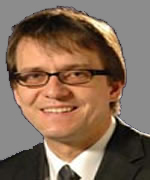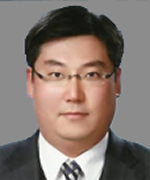Satellite Conference on Artificial Intelligence & Data-Driven Innovations (AIDDI2021)
Introduction
The Artificial Intelligence & Data-Driven Innovations aims to bring together leading academic scientists, researchers, and research scholars to exchange and share their experiences and research results on all aspects of artificial intelligence, advanced analytics, and data-driven innovations. It also presents a premier multidisciplinary platform for researchers, practitioners, and educators to present and share ideas regarding the latest discoveries, trends, and interests as well as intellectual and practical challenges encountered and solutions adopted in the fields of artificial intelligence, advanced analytics, and data-driven innovations.
Artificial Intelligence (AI) has undoubtedly been the buzz word since the 2010s, and the excitement is unlikely to wear off any time soon. The modern AI research should provide cutting-edge solutions to deal with complex data structures. With the detail and volume of data being collected, the way one stores, handles and analyses the data has gone beyond the capability that can be drawn from a human being, thus AI to complement the process for decision making. AI research draws consideration be it from a modeling, data architecture or operations perspective. Today AI innovation becomes useful when it enriches decision-making supported by Big Data (BD) and Advanced Analytics (AA).
Data-Driven Innovation (DDI) presents tremendous economic and social values capable of transforming the way we work, communicate, learn and live our lives. DDI forms a key pillar in the 21st century sources of growth. The confluence of several trends, including the increasing migration of socio-economic activities to the Internet and the decline in the cost of data collection, storage and processing, is leading to the generation and use of BD. While AA has been around for quite some time, what new is the increasing capacity for enterprises and governments to analyze and use this information – from a variety of voluminous sources of structured and unstructured data, real-time and static – to innovate and improve the outcomes of everyday life.
Submission
All submissions must represent original and unpublished work that is not currently under review. Each paper will be reviewed by at least three (3) PC members. Manuscripts are assessed based on originality, significance, interest, correctness, clarity, and relevance to the broader community. At least one author of each accepted paper is expected to register for the conference. Full papers are expected to report new scientific results, sharing experiences, measurements, use case studies, and appropriate quantitative evaluation if at all possible.
Authors are free to use any template at the point of submission. We accept both Microsoft Word®️ and/or LaTeX®️ format.
Scope
Potential topics of interest include (but are not limited to):
- Agent-based systems
- Artificial Intelligence
- Artificial Neural Network theory and models
- Big Data modeling and prediction
- Data Science and Data Mining
- Deep Learning
- Evolutionary Neural systems
- Expert Systems
- Heuristics, Metaheuristics, Matheuristics, and Hyperheuristics
- Intelligent System Engineering
- Internet of Things and Internet of Everything
- Machine Learning theories, models, and systems
- Natural Language Processing
- Optimization and Data Analytics
- Reinforcement Learning
- Supervised Learning and Unsupervised Learning
Publications
The AIDDI2021 aims to give the researchers a channel to publish investigation outcomes to the current trends be it from a theoretical perspective and potential applications of AI, BD, and AA for DDI. This investigation can be formed with a focus on data-driven human-machine interactions and AI applications at different levels of DDI maturity. All accepted manuscripts will be published in Scopus®️ and/or JCR indexed journals. The full list of journals can be viewed at: https://einspem.upm.edu.my/icrem9/pages/publications.php
Please regularly visit this website to view our updated list.
Plenary Speakers

|
PROFESSOR DR. STEFAN PICKL https://www.unibw.de/comtessa/team/pickl/stefan-pickl Stefan Pickl studied mathematics, electrical engineering, and philosophy at TU Darmstadt and EPFL Lausanne 1987-93. He obtained his Dipl.-Ing. In 1993 and his doctorate in 1998 with award. He was an assistant Professor at Cologne University (Dr. Habil. 2005; venia legendi "Mathematics"). He went to University of New Mexico in USA, University Graz in Austria, University of California at Berkeley and Naval Postgraduate School NPS Monterey in USA as a visiting professor and was a visiting scientist at SANDIA, Los Alamos National Lab, Santa Fe Institute for Complex Systems and MIT. He was associated with Center for Information Technology and Algorithms (CITA) in USA, Center for Network Innovation and Experimentation (CENETIX) and Vice-Chair of EURO group “Experimental OR”. He was also involved in Highly Gifted Pupils programme and Research Program “Intelligent Networks and Security Structures” (INESS). He also obtained International Best Paper Awards from his various presentations in ’03, ’05, '07 and ‘15. He was the chair of the Advisory Board of the German Society for Operations Research (GOR) and chair of the GOR working group “Simulation and Optimization of Complex Systems”. His research interests are Optimization of Complex Systems, IT Based Decision Support Systems/Reachback Architectures, Strategic Management. The Core Competence Center C3 for Operations Research, Management, Tenacity, Excellence, Safety and Security Alliance (COMTESSA) was founded by Stefan Pickl and he is a member of Munich Aerospace (an aviation management) and House of Logistics and Mobility (HOLM) Frankfurt, Germany. |
|
PROF. DR. ZONG WOO GEEM |
PROF. DR. ZONG WOO GEEM Department of Energy IT ResearcherID Scopus ID Google Scholar
|
|








